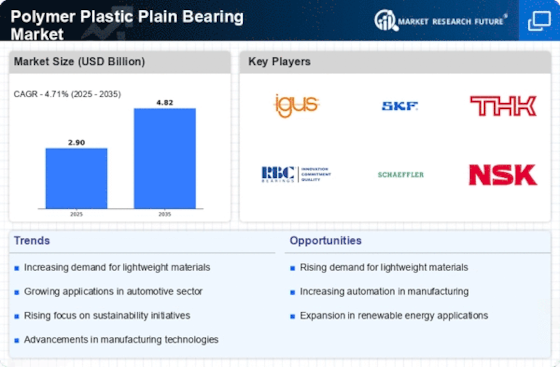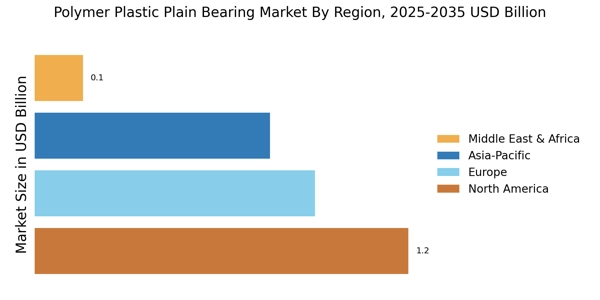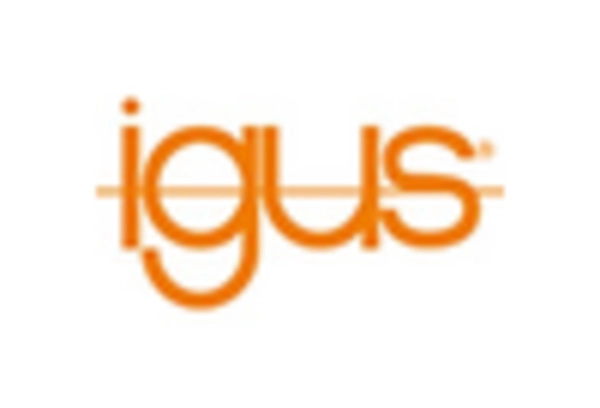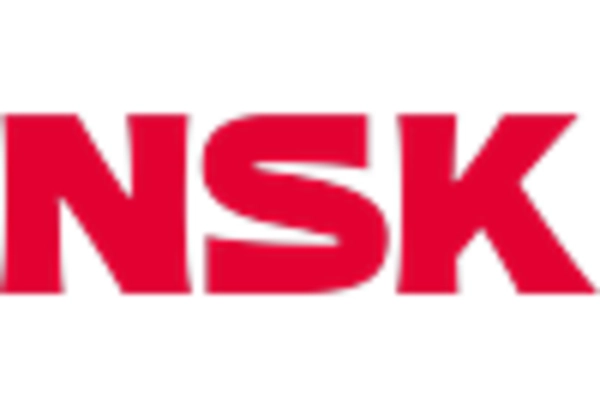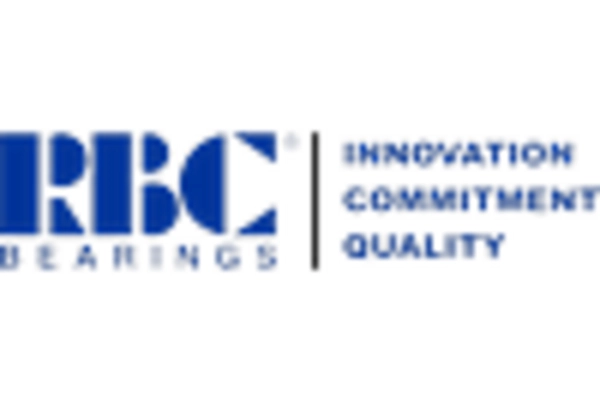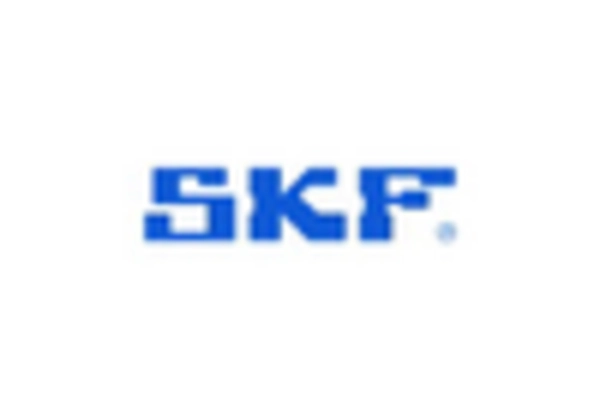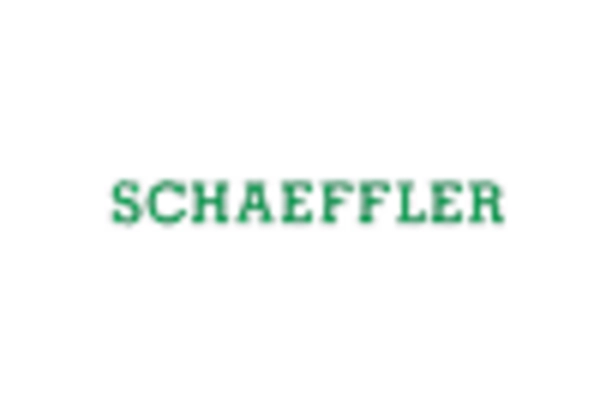Cost-Effectiveness
Cost-effectiveness is a crucial driver in the Polymer Plastic Plain Bearing Market. As manufacturers seek to optimize production costs, polymer bearings offer a viable alternative to traditional metal bearings. The lower material costs, combined with reduced maintenance requirements, make polymer bearings an attractive option for various applications. Additionally, the lightweight nature of these bearings can lead to energy savings in applications where weight reduction is critical. Market data suggests that the adoption of polymer bearings can result in overall cost savings of up to 20% for manufacturers. This financial advantage is particularly appealing in competitive markets, where cost efficiency can significantly influence purchasing decisions. As industries continue to prioritize cost management, the Polymer Plastic Plain Bearing Market is likely to see sustained growth driven by the economic benefits of polymer materials.
Growing Automation
The trend of growing automation across various industries significantly impacts the Polymer Plastic Plain Bearing Market. As manufacturing processes become increasingly automated, the demand for reliable and efficient components, such as polymer plastic bearings, is on the rise. These bearings are favored for their lightweight properties and resistance to corrosion, making them ideal for automated systems that require precision and durability. Industries such as robotics, packaging, and material handling are particularly driving this demand. Market analysis suggests that the automation sector could contribute to a substantial increase in the polymer bearing market, with projections indicating a growth rate of approximately 7% annually. This trend underscores the importance of polymer plastic bearings in enhancing operational efficiency and reducing maintenance costs in automated environments.
Diverse Applications
The diverse applications of polymer plastic bearings are a significant driver for the Polymer Plastic Plain Bearing Market. These bearings are utilized in a wide range of sectors, including automotive, aerospace, consumer electronics, and medical devices. Their versatility stems from their ability to perform well in various environments, including high temperatures and corrosive conditions. As industries evolve and new applications emerge, the demand for specialized polymer bearings is expected to increase. For instance, the automotive sector is increasingly incorporating polymer bearings in electric vehicles, where weight reduction and efficiency are paramount. Market forecasts indicate that the expansion of applications could lead to a growth rate of around 6% in the polymer bearing segment over the next few years. This trend highlights the adaptability of polymer materials and their potential to meet the evolving needs of various industries.
Sustainability Initiatives
The Polymer Plastic Plain Bearing Market is increasingly influenced by sustainability initiatives. As industries strive to reduce their carbon footprint, the demand for eco-friendly materials has surged. Manufacturers are now focusing on producing polymer plastic bearings that are recyclable and made from renewable resources. This shift not only aligns with environmental regulations but also appeals to consumers who prioritize sustainability. The market for sustainable bearings is projected to grow, with estimates suggesting a compound annual growth rate of over 5% in the coming years. Companies that adopt sustainable practices are likely to gain a competitive edge, as they can attract environmentally conscious clients and enhance their brand reputation. Furthermore, the integration of sustainable materials in the Polymer Plastic Plain Bearing Market may lead to innovations that improve product performance while minimizing environmental impact.
Technological Advancements
Technological advancements play a pivotal role in shaping the Polymer Plastic Plain Bearing Market. Innovations in material science have led to the development of high-performance polymers that exhibit superior wear resistance and reduced friction. These advancements enable manufacturers to produce bearings that can withstand extreme conditions, thereby expanding their application range across various sectors, including automotive, aerospace, and industrial machinery. The introduction of advanced manufacturing techniques, such as 3D printing, is also revolutionizing the production process, allowing for more complex designs and reduced lead times. Market data indicates that the adoption of these technologies could enhance the efficiency of polymer bearings, potentially increasing their market share by 10% over the next few years. As industries continue to seek reliable and efficient solutions, the Polymer Plastic Plain Bearing Market is likely to benefit from ongoing technological innovations.
.png)

